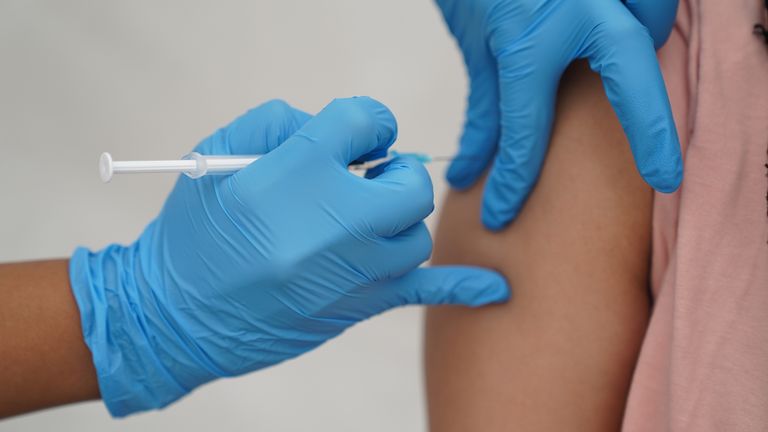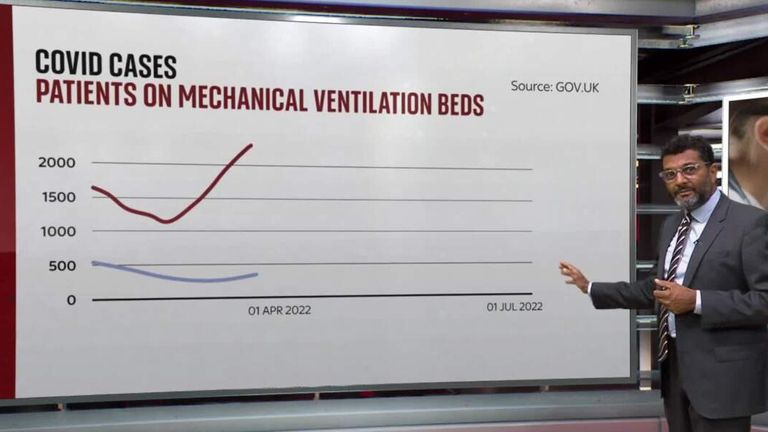Our grief must be at ‘heart of COVID inquiry’, families of victims say | UK News
Families of COVID-19 victims have welcomed the recognition of their “devastating” bereavement at the opening of the coronavirus inquiry, but called for this to be reflected in the process.
As the inquiry began, its chair pledged to work “as speedily as possible” to make sure lessons can be learned before another pandemic emerges.
Baroness Heather Hallett warned the inquiry “will take time and have a significant cost”.
The probe was formally launched at the end of June, just days after bereaved families threatened to take legal action over delays.
Boris Johnson, the prime minister, had said the inquiry would start this spring.
Lady Hallett said all witnesses and those with evidence will be treated fairly but she “will not hesitate” to speak out about any key witnesses or organisation “who stands in the way” of the inquiry’s aim, which is to examine the response to the pandemic and its impact in all four nations of the UK.
She said she was struck by the “devastating nature” of people’s loss, and plans to conduct the inquiry in a way that “acknowledges this suffering and seeks to reduce the scope for others to suffer in the same way in the future”.
Elkan Abrahamson, head of major inquests and inquiries at Broudie Jackson Canter, who legally represents the COVID-19 Bereaved Families for Justice campaign, said it is of “fundamental importance” that the government fully discloses all relevant documents to the inquiry.
“The bereaved would regard anything less than full disclosure as a cover up,” he added.
Preliminary hearings will start as soon as September this year, followed by substantive public hearings from late spring next year, she said.
Lady Hallett said a “listening exercise” will begin later this year, allowing members of the public to share their story without formally giving evidence or going to a hearing.
She said aspects of the pandemic will be grouped into modules, with the first looking at whether the risk of a pandemic was properly identified and planned for.
Those who want to take part have to apply to become a core participant by 16 August, with the first preliminary hearing set for 20 September.
Bereaved families ‘need to be at the heart of the process’
Jo Goodman, co-founder of the COVID-19 Bereaved Families for Justice campaign said it was “an emotional day”.
“It meant a lot to hear Baroness Hallet recognise the ‘devastating nature of bereavement’ and the pain we’ve been through,” she said.
“Hopefully this will be reflected by not making bereaved families go through the stressful and draining process of applying to be core participants in every single module.
“Ultimately, all bereaved families want the same thing, which is to make sure that lessons are learnt from our devastating losses to protect others in the future.
“For the inquiry to be successful our experiences need to be at the heart of the entire process, be that the research they’re commissioning, the evidence being gathered or the hearings themselves.”
The second module of the inquiry will look at decisions made by politicians and officials, covering issues like lockdowns, public health messaging, as well as the use of scientific expertise, modelling and data.
Additional hearings will take place in Scotland, Wales and Northern Ireland.
A third module will look at the impact of the virus and the governmental and societal response to it, focusing on patients, hospitals, health care staff, NHS backlogs, vaccination and long COVID.
Lady Hallett said “this will not be completed as quickly as some might like”, adding: “I make no apology for that.”
She said she needed time to make sure the inquiry has access to the evidence it needs and time to analyse it.
Commission launched to honour COVID victims
On the first day of the probe, the government also launched a new commission to determine how the UK will commemorate the victims and heroes of the pandemic.
Set to report back by March next year, the UK Commission on COVID Commemoration is expected to hear submissions from campaign groups and individuals on how the country should remember those who died of the virus, as well as those at the frontline fighting it.
More than 200,000 people have died with COVID in the UK.
Mr Johnson had previously announced plans to create the commission, which will be led by former culture secretary Baroness Nicky Morgan.

